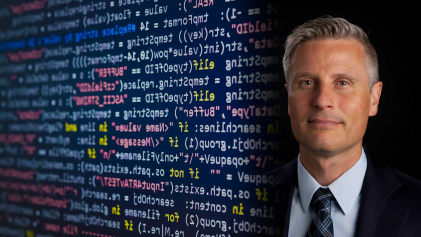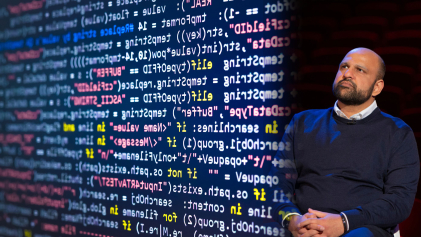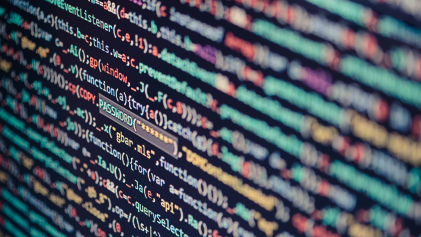Worldwide harmonisation AI can harm regional values
Artificial Intelligence (AI) is developing at lightning speed and transcending national borders. How can we steer the development of AI in the right direction? In this episode of the blog series #theWorld&AI, we talk to Sally Radwan, the IA advisor for the Egyptian minister of ICT. ‘There is a huge concern that AI products created by large multinationals are imposed on us without any proper assessment of the local markets’ needs.’
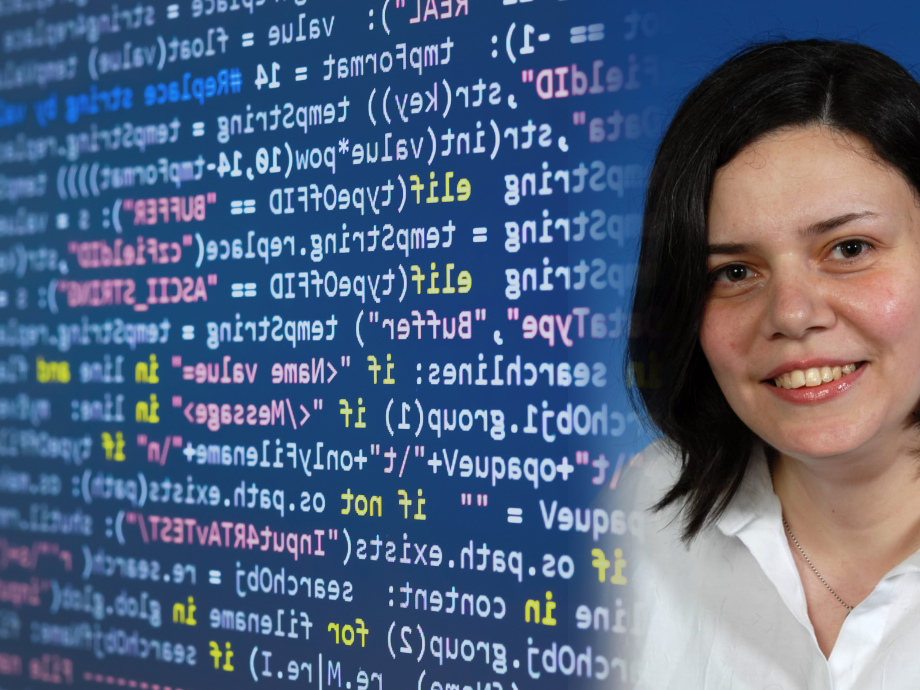
In short:
- In the coming months, the Rathenau Instituut will be addressing the global importance for responsible AI.
- Sally Radwan, advisor for AI in Egypt, believes that too much international harmonisation can conflict with cultural values and norms.
- According to Radwan, public-private partnerships play a crucial role in developing responsible AI.
UNESCO is currently working on an international recommendation on ethics and AI. 24 experts from around the world are writing global guidelines that will be presented to 195 member states in November 2021. The Rathenau Instituut has been appointed as a national observer in the development of the international recommendation. This role gives the Rathenau Institute the opportunity to watch proceedings and to provide substantive comments.
In the coming months we will be asking inspiring thinkers for their ideas. Which aspects do they consider important for this international discussion? Each blog post covers a different theme, such as the responsibility of companies in deploying AI, the role of governments and policymakers, promoting technological citizenship, and the impact AI has on work and education.
About Sally Radwan
Golestan (Sally) Radwan is the minister’s advisor for artificial intelligence at the ministry of communications & information technology of Egypt. She was director of Artificial Intelligence Products at Babylon Health. Radwan is one of the 24 independent experts of UNESCO’s Ad Hoc Expert Group on the Ethics of AI. She is also a member of the ONE.AI Network at the Organisation for Economic Cooperation and Development (OECD).
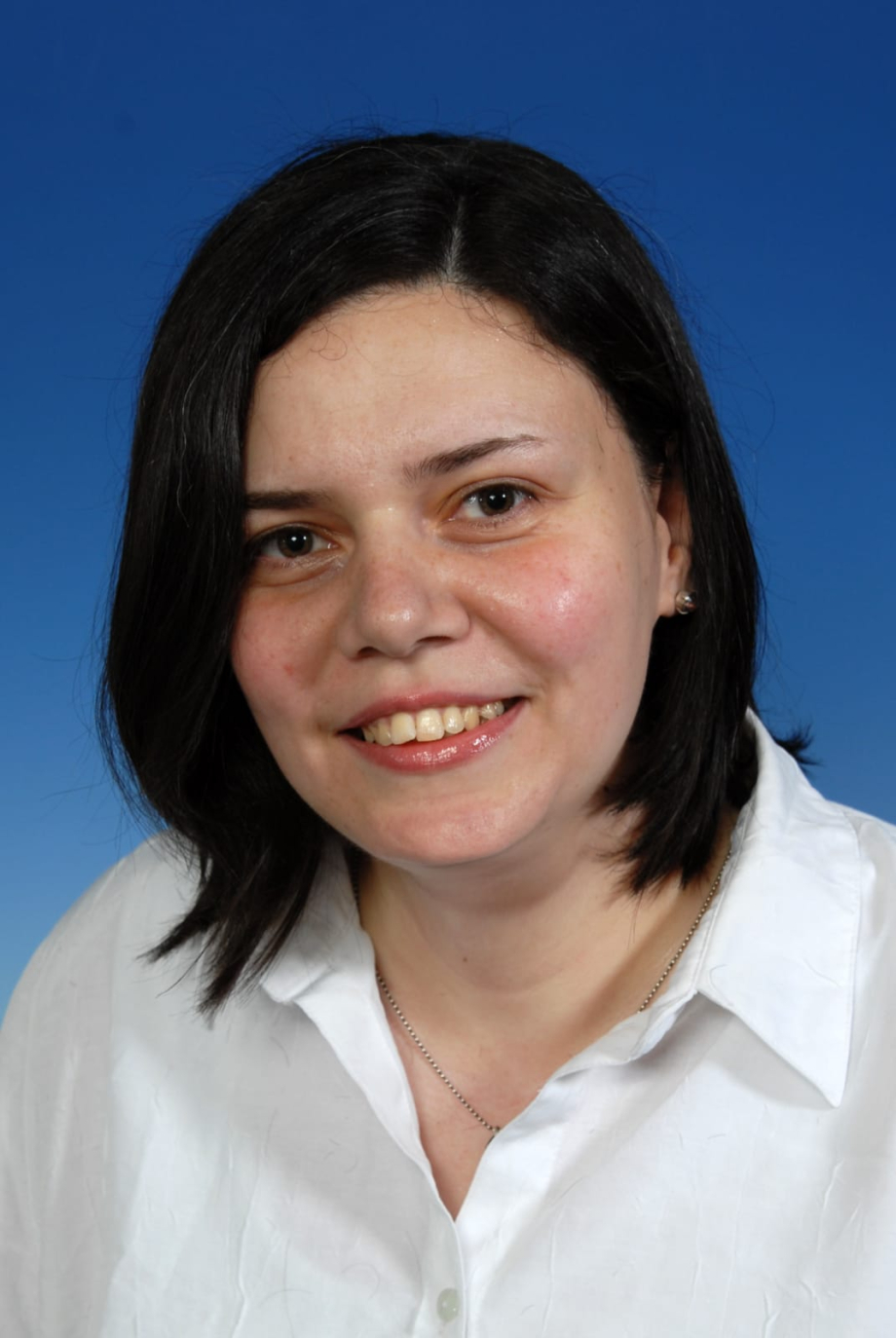
About Egypt
Egypt occupies a strategic location on the African continent. Asia, Africa, the Mediterranean, the Red Sea, the Middle East and the Nile Basin are all geographic entities that Egypt is either part of or is on the periphery of. This makes Egypt a crossroads between two continents, between several geopolitical regions and between cultural values. Therefore, it is interesting to hear more about the view of Egypt on UNESCO’s effort to draft global AI norms, because those norms might lack cultural perspective.
What is the importance of UNESCO’s global Recommendation for the Ethics of AI?
‘Even if it’s non-binding, which is the case with the UNESCO recommendation, it is important to have an international document that represents most of the globe’s civilisation. UNESCO’s document is an attempt to do that, and to include underserved groups and people who won’t normally get a chance to participate in these types of standard-setting instruments.’
Is this new?
‘What we have seen so far, especially for AI ethics, are very concentrated efforts. Countries, regions and companies have developed their own ethical standards, mostly representing specific groups. However, there is nothing developed that represents all of humanity. In this effort UNESCO genuinely attempts to include as many people as possible, from all walks of life, and not just experts.’
What difficulties caught your eye?
‘One of the main things that the regional multi-stakeholder consultations revealed, is that it’s very hard to get everyone’s opinion on something that they don’t fully understand. There needs to be a basic level of knowledge about the concepts of AI for everyone to be able to weigh in on a document such as this. Sadly, that level of understanding and awareness of AI is not present to the required degree in many parts of the world.
Is this a typical regional challenge?
‘No, at least not as in developing countries versus developed countries. You find it everywhere, and the differences are huge. So ideally, if we had more time, this would have been preceded by a huge, global, capacity-building effort and attempts to reach all of these target groups, to bring them up to speed and to build that level of knowledge. And then we would build the ethics framework. But for many reasons we couldn’t do that.’
What is your biggest concern regarding international cooperation and the development of AI?
‘A general concern is the lack of standards that guide not just ethics, but any kind of development and thinking around AI and its use in our lives. And also, the difference in priorities and in the level of importance that different cultures and people, even as individuals, ascribe to certain aspects of AI. I think it is finding that common denominator. Also, as we go into the negotiation phase between member states, that’s going be the most challenging.’
Do you worry the recommendation will get too diplomatic?
‘The biggest challenge for the UNESCO recommendation is to find the right balance. How do we come up with a text that represents all the member states, that everyone is happy with, but that is still powerful enough to actually mean something and to be relevant and applicable on the ground? I have sat on numerous efforts such as this in other international organisations. You start with something that looks strong. Then in the negotiations, you keep watering it down. Finally, it becomes so generic that it means very little. In the end it will have little impact.’
What have you done to keep the impact high?
‘To ensure that this recommendation doesn’t end up being shelved, we’ve tried to come up with a framework that recognises that member states will be at different stages of readiness to implement it. That is why we have included a kind of readiness assessment tool. With this, member states can hopefully endorse the recommendation as a whole, accepting that certain things are not very relevant to them at this stage yet.
Can you specify an example?
Let us take a representative from Finland who talks about the importance of capacity building in AI and how they are going to upskill the Finnish population. Finland has a population of 5,5 million. So, if you are talking about educating 1% of the population in AI, which is 55,000 people. Whereas in Egypt, if you are talking about 1% of the population, that is one million people, maybe 40% of whom are illiterate to begin with. I believe the inclusion of a readiness assessment is quite unique to this UNESCO recommendation. We are hoping that it makes the document more relevant and applicable.’
What are important African-Arab issues perspective for the development of AI?
‘In this part of the world there is a lot of emphasis on trustworthiness. How do we ensure that the system is trustworthy? Which involves respect for privacy and individual rights, but even more the legitimacy of data sources. There is a huge concern that AI products created by large multinationals are imposed on us without any proper assessment of the local markets’ needs, and often without training on local data. Therefore, they are not relevant; they are not customised to local needs. They are, in many cases, misleading and just plain wrong and damaging.’
What have you done about that?
‘For some of the policy actions in the recommendation, we insisted on including a need for the feasibility and the localisation of these products, and also things like sovereignty on data and AI systems.’
What else?
‘We emphasize the importance of preserving cultural values and norms. Seen from an Egyptian perspective, there is some fear of too much standardisation and too much harmonisation of values and of traditions, in the negative sense. We’re worried about cultural heritage and cultural norms and values being lost or not being respected in a world that is too interconnected by AI.’
Why is that?
‘As we tend to be somewhat conservative societies, things like family values and the respect for religious traditions have a very high standing. However, I am also talking about certain medical outcomes that might be acceptable in some parts of the world, but not in ours. Like a course of treatment or going into palliative care versus continuing treatment, isolating a patient from their family or, in some cases, ending a patient’s life because all options of treatment have been exhausted. This is not so much to do with the scientific side of AI but with the social context. And these types of values are obviously different around the world, so it’s important that these differences are acknowledged and that the whole world is not treated as one big mass of neutral values and principles.’
How does Egypt position itself concerning AI development in the world?
‘Actually, I think we are very fortunate to be part of these two very rich regions of the world, which are also at quite similar stages in their development so there are a lot of commonalities between the positions within Arab and African countries. That’s why Egypt took the leadership at the OECD level and proposed to lead the two AI working groups of the African Union and in the Arab states.’
What is Egypt's perspective?
‘The way we look at AI in Egypt and the way we try to push it in both regions is very much seen from a development perspective. Therefore, we are focused on how AI can help us solve problems and address challenges. In this way, countries in both regions can grow and develop, raise the quality of life and stimulate economic growth.’
How do you give concrete direction to this AI for development approach?
‘What we found in Egypt is that public-private partnerships work really well. The expertise and cutting-edge technology that comes from the industry are combined with a mandate that governments carry about doing good.’
That sounds a bit vague. Can you give an example?
‘Recently we started a joint project with the ministry of communications and information technology, with the ministry of agriculture and with two companies Microsoft and Esri. The project aims to scan the entire agricultural map of Egypt and to use machine learning and deep learning models to predict the exact amount of water that is needed for irrigating any agricultural plots. Based on factors such as soil moisture and condition, weather, crop type and stage of growth, plot size and much more. Aspects that can only be calculated using machine learning models.’
What else?
‘Initiatives and partnerships like this can be very fruitful and our hope is that through our membership of the African Union and the Arab states, Egypt will be able to roll out projects like these on a larger scale and implement them in different countries in both regions. It should definitely attract investors that are interested in African and Arab countries and there is a huge potential for development and scale. Therefore, our strategy is very much built on a partnership model.’
Can you explain Egypt’s AI strategy a bit more?
‘Our AI strategy is mainly focused on deploying AI technologies in key sectors that help with Egypt’s development goals. We structured it in terms of four pillars: AI for development, AI in government (so, how do we modernise our government using AI?), AI for human capacity building; and AI for external relations. That includes our work with international organizations and the cooperation with different governments. Egypt has a National Council on AI, which oversees things like new laws and legislations and proposes them to Parliament.’
And what about the partnerships?
‘All of our AI projects are structured through partnerships. We are trying to deploy a model where there are always three parties. One is a beneficiary in Egypt, which could be a school, a ministry or a private entity that would benefit from this solution. Then we bring in a technology partner. That can be someone from the private sector, either from within Egypt or from abroad. In that respect we definitely encourage start-ups to join.’
And the third party?
‘The third arm is the capacity-building arm. With all our AI projects, we want to build a local team that works together with the technology partner and the beneficiary, so that people really learn how to deploy AI projects from end-to-end and put it into production. Which is very different from just playing around with some models and producing some results. We focus on these co-development models for technology transfer into the country. This way, we can build an AI industry in the country while simultaneously solving problems, which helps with our development goals. AI for good, that’s the big win.’
